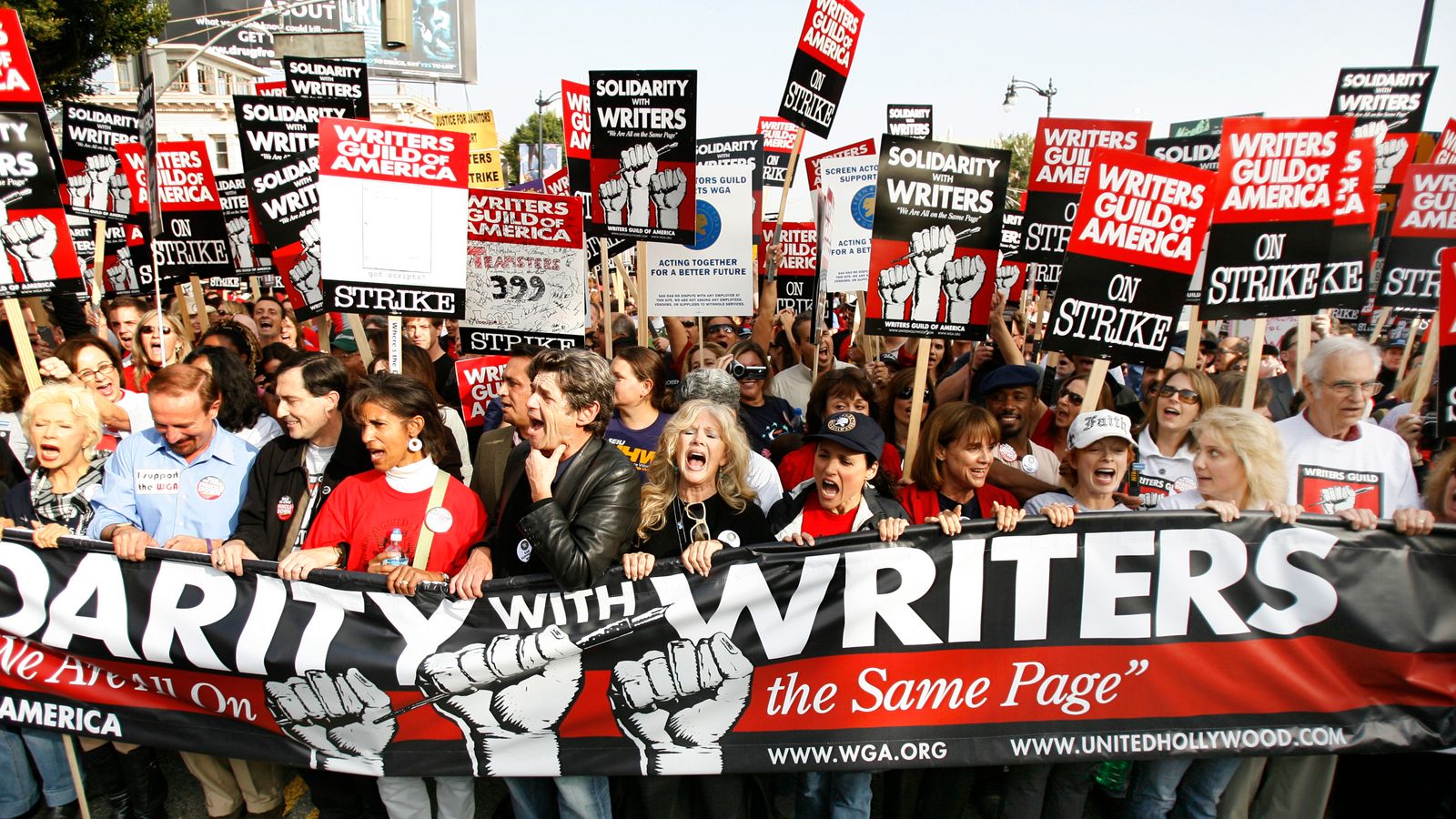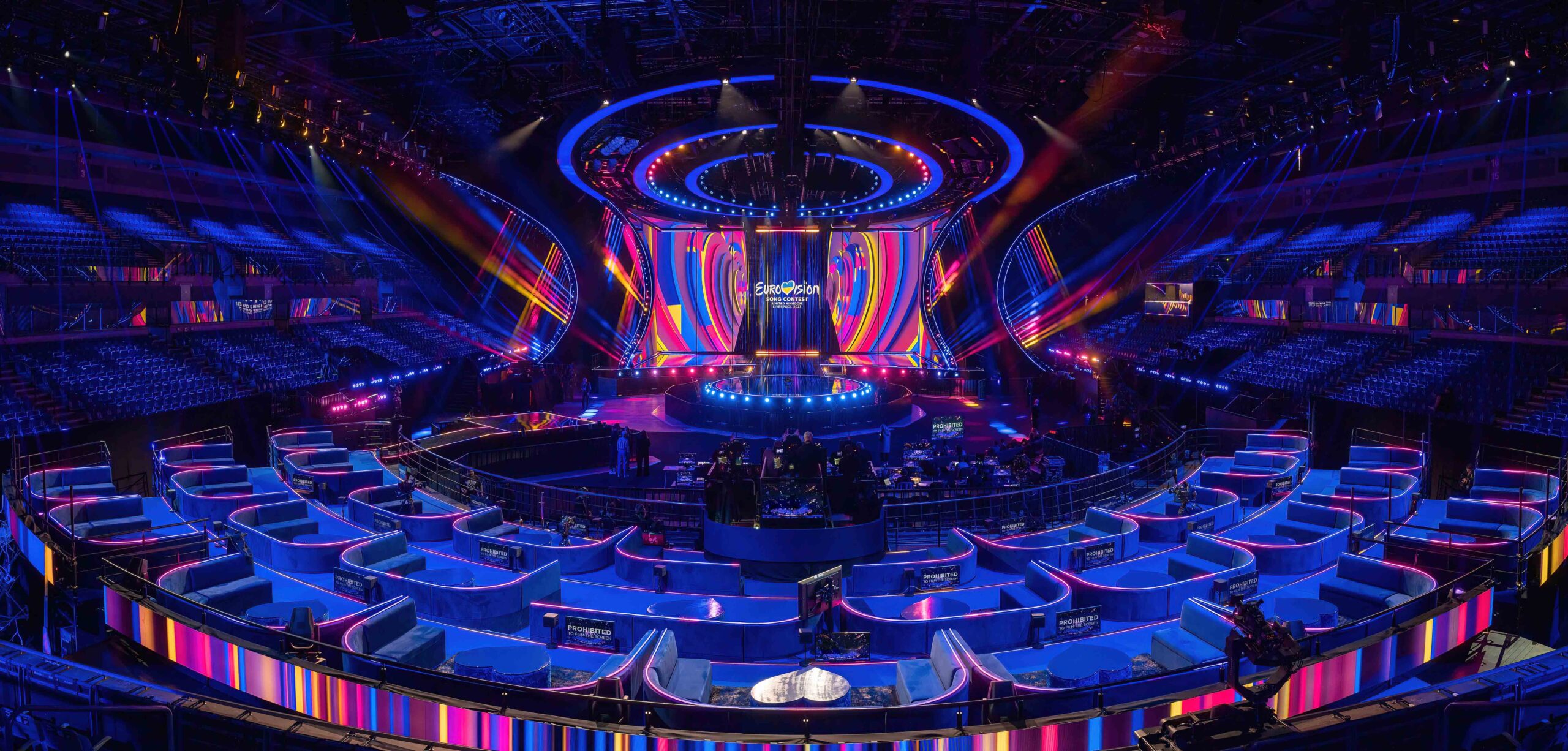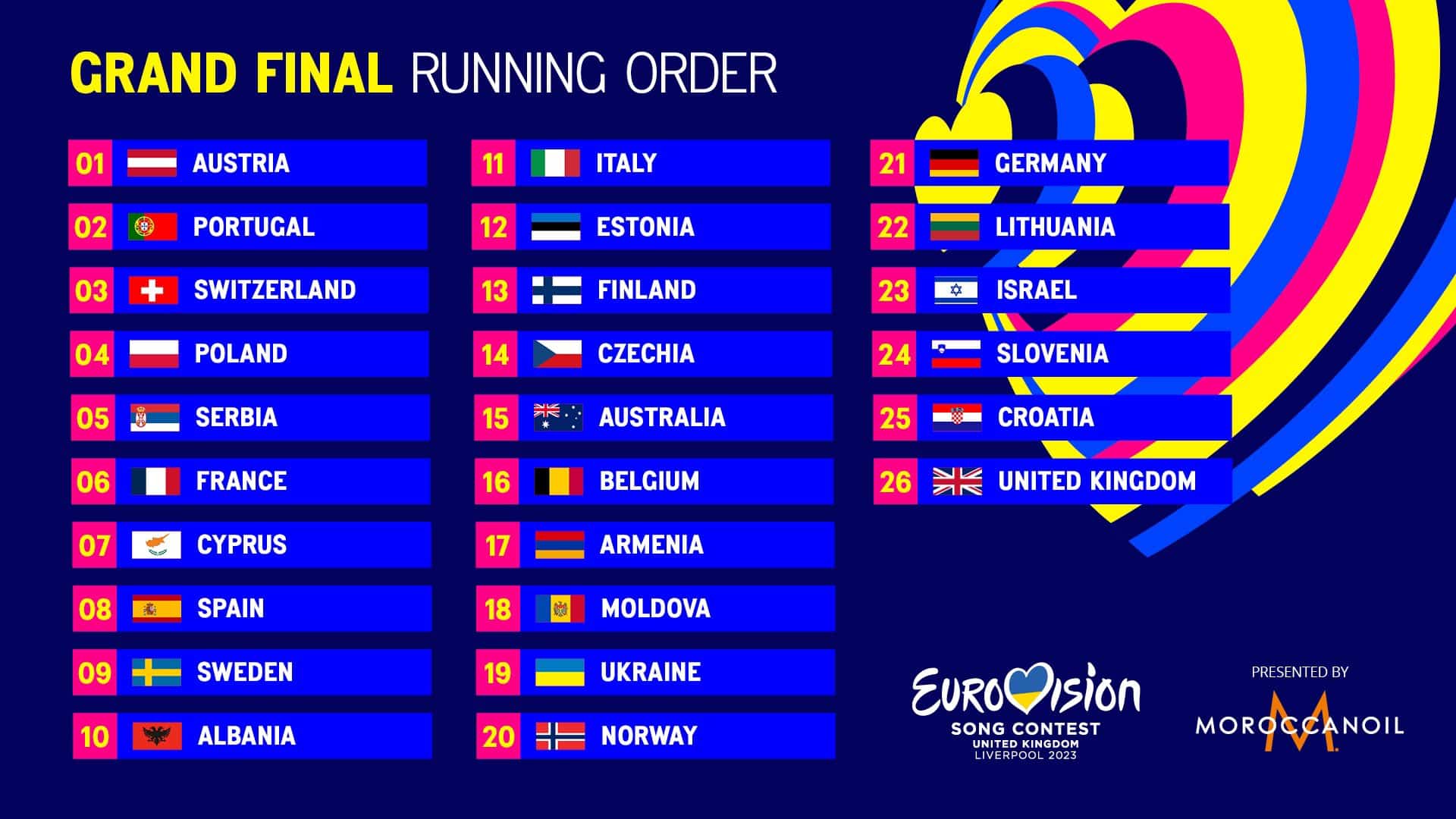Hollywood Strike: Actors Join Writers, Bringing Production To A Halt

Table of Contents
The Core Issues Fueling the Hollywood Strike
The current Hollywood strike is not about a single grievance; it's a culmination of long-simmering frustrations regarding fair compensation, the rise of artificial intelligence (AI), and exploitative working conditions.
Fair Wages and Residuals in the Streaming Era
The advent of streaming platforms has drastically altered the compensation landscape for actors and writers. Traditional residuals, payments made to artists each time their work is aired, have plummeted. Streaming services often pay a lump sum upfront, regardless of viewership, leaving performers with significantly less income than they would have received under traditional broadcast models.
- Examples: A writer might receive a much smaller payment for a show with millions of viewers on a streaming platform compared to a show with fewer viewers on network television. Actors similarly see significantly reduced residuals from streaming platforms compared to the broadcast era.
- Statistics: While precise figures are difficult to obtain due to the confidential nature of contracts, numerous reports indicate a significant disparity between traditional media residuals and those offered by streaming giants.
- Union Demands: The unions are demanding fairer compensation models that account for streaming viewership and better reflect the value of their members' work. This includes revisiting revenue-sharing models and exploring new payment structures tailored to the streaming environment.
AI and its Impact on Creative Jobs
The use of artificial intelligence presents a major concern for both actors and writers. The fear is that AI could be used to replace human creatives, generating scripts, creating digital likenesses of actors without their consent or compensation, and ultimately devaluing their skills and expertise.
- AI in the Industry: Examples of AI being used include AI-generated scripts, AI-powered deepfakes, and AI-driven tools for editing and post-production.
- Potential Consequences: The unchecked use of AI could lead to job losses, reduced creative control, and decreased compensation for artists.
- Union Demands: The unions are seeking strong protections against AI exploitation, including ensuring that performers receive compensation when their digital likenesses are used and that AI is not used to replace human creativity. They are also advocating for regulations to prevent AI from undermining their professions.
Working Conditions and Exploitation
Beyond compensation, the unions are addressing long-standing issues surrounding working conditions. Many actors and writers face grueling hours, demanding schedules, and a lack of adequate healthcare benefits and other welfare provisions. These working conditions contribute significantly to burnout and are often exploitative.
- Long Hours and Demanding Schedules: The relentless pressure to meet deadlines and maintain high production value frequently leads to unsustainable working hours.
- Lack of Healthcare Benefits: Many actors and writers, especially those working on smaller productions or on a freelance basis, lack access to comprehensive healthcare.
- Union Demands: The unions are demanding better working conditions, including reasonable working hours, improved safety standards, and better access to healthcare and other welfare benefits. They are pushing for industry-wide reforms to eliminate exploitative practices.
The Impact of the Hollywood Strike on the Entertainment Industry
The Hollywood strike has far-reaching consequences that extend beyond the immediate participants.
Production Delays and Cancellations
The strike has brought television and film production across the country to a standstill. Major projects, including numerous anticipated series and films, have been delayed or cancelled indefinitely.
- Examples: Numerous high-profile productions across major studios have been affected.
- Economic Consequences: The production shutdowns are resulting in massive financial losses for studios, production companies, and related businesses.
- Financial Impact: The economic impact of the strike is measured in billions of dollars lost in revenue and productivity.
Ripple Effects on Related Industries
The strike isn't confined to the entertainment industry; it has a significant impact on numerous related industries.
- Support Industries: Catering services, location scouting, transportation, and many other businesses that support film and television production are experiencing severe financial strain due to the stoppage.
- Tourism: Areas heavily reliant on film and television production for tourism revenue are experiencing a substantial negative impact.
- Broader Economic Effects: The strike's impact extends to the economy as a whole, affecting employment and impacting various related sectors.
The Public’s Reaction and Support for the Strike
The public's reaction to the strike has been largely supportive, with many expressing understanding for the actors' and writers' demands.
- Public Opinion: Social media platforms are flooded with messages of solidarity and support for the striking actors and writers.
- Boycotts and Public Actions: There have been calls for boycotts of streaming services and other related companies as a show of support for the unions.
- News Coverage: The strike has received extensive coverage in mainstream media, generating public awareness and discussion about the issues at stake.
Potential Resolutions and the Path Forward for the Hollywood Strike
Negotiations between the unions and the Alliance of Motion Picture and Television Producers (AMPTP) are ongoing, but the path to a resolution remains uncertain.
- Potential Outcomes: Possible scenarios include partial agreements addressing some issues while leaving others unresolved, or a complete agreement addressing all of the main concerns. A prolonged strike also remains a possibility.
- Expert Opinions: Industry experts have differing opinions on the likely outcome and duration of the strike.
- Future of the Strike: The future of the Hollywood strike will depend heavily on the willingness of both sides to compromise and reach a mutually agreeable settlement.
Conclusion
The Hollywood strike, encompassing both actors and writers, represents a critical turning point for the entertainment industry. The core issues—fair wages and residuals in the streaming era, the impact of AI on creative jobs, and exploitative working conditions—underscore the need for significant reform. The strike's impact is far-reaching, causing production delays, affecting related industries, and sparking a nationwide conversation about the future of work in Hollywood. The resolution of this Hollywood actors' strike will significantly shape the industry's landscape for years to come. Stay informed about the ongoing Hollywood strike and its developments by following reputable news sources and the official websites of SAG-AFTRA and the WGA. The future of entertainment depends on it.

Featured Posts
-
 Public Viewing Of Pope Francis Body St Peters Basilica
Apr 25, 2025
Public Viewing Of Pope Francis Body St Peters Basilica
Apr 25, 2025 -
 Double Trouble In Hollywood Writers And Actors Strike Impacts Film And Tv Production
Apr 25, 2025
Double Trouble In Hollywood Writers And Actors Strike Impacts Film And Tv Production
Apr 25, 2025 -
 Oklahoma School Closure Updates Wednesdays Winter Weather Impact
Apr 25, 2025
Oklahoma School Closure Updates Wednesdays Winter Weather Impact
Apr 25, 2025 -
 Wedding Day Makeup Dispute Bride Vs Bridesmaid
Apr 25, 2025
Wedding Day Makeup Dispute Bride Vs Bridesmaid
Apr 25, 2025 -
 Dissecting The 230 000 Price A Look At The Lotus Eletre
Apr 25, 2025
Dissecting The 230 000 Price A Look At The Lotus Eletre
Apr 25, 2025
Latest Posts
-
 Watch Eurovision 2025 Live Your Guide For Australian Viewers
Apr 30, 2025
Watch Eurovision 2025 Live Your Guide For Australian Viewers
Apr 30, 2025 -
 Eurovision 2025 Live Stream Australia Date Time And Viewing Options
Apr 30, 2025
Eurovision 2025 Live Stream Australia Date Time And Viewing Options
Apr 30, 2025 -
 Germanys Political Landscape Klingbeils Bid For Vice Chancellor And Finance Minister
Apr 30, 2025
Germanys Political Landscape Klingbeils Bid For Vice Chancellor And Finance Minister
Apr 30, 2025 -
 When And Where To Watch The Eurovision Song Contest 2025 In Australia
Apr 30, 2025
When And Where To Watch The Eurovision Song Contest 2025 In Australia
Apr 30, 2025 -
 The Implications Of Lars Klingbeils Potential Appointment As German Finance Minister
Apr 30, 2025
The Implications Of Lars Klingbeils Potential Appointment As German Finance Minister
Apr 30, 2025
